
It's not often new names crop up in UK climbing media circles, but one such name that has been appearing time and again recently is Lukasz Warzecha of LWImages.co.uk.
It's the type of name I am always going to struggle to spell, let alone pronounce, but it isn't his name that springs to mind when I think about Lukasz, it's his absolutely stunning photographs.
In this short interview Thomas Mazur asks Lukasz a few questions about his photography. The interview is complimented by a selection of images from Lukasz.
Interview by Thomas Mazur:
You completed the photography course at Thames Valley University. Why, out of so many branches of photography, did you decide to focus on the outdoor industry?
It seemed like an obvious choice for me. As a climber I was going to all those places anyway and although my climbing now is secondary (always) I still experience the same thrill when visiting perfect climbing locations. My course at TVU had nothing to do with outdoors, it was all about studio photography and digital imaging and with all honesty, I didn't realise what I was letting myself into... :-)
Oh, yeah... It's good to mention that for a while you were a pretty decent climber, with a few first free ascents in the Tatra Mountains on your tick list... Do you feel you missed out by not continuing your climbing career? Do you think it is possible to combine photography and climbing at a professional level?
I think that dedication is what is required at professional level in anything we do, and I don't feel I would have time to do both. My climbing experience helps me a lot in understanding an athlete's mindset, but photography comes first for me now.
A recent experience clearly illustrates this: I went on a non-commercial trip to South Africa, but I had very specific images in mind to execute, so before leaving I made a careful list of the gear I needed to pack. It was a lot of stuff, believe me, but only on my way to the airport did I realise that I'd forgotten my climbing shoes and chalk bag... I'm a photographer not a climber!
You have now spent one and a half years working intensively in the industry. What has surprised you in this time, have there been any disappointments, and how did it compare to your expectations of starting a new career?
You're right and its been a blast. I think the biggest surprise was that it was so easy to go beyond my expectations over such a short period of time. I'm still overwhelmed by the recognition I get for my work.
Disappointed? No way! Don't forget that I'm living the dream.
Where, or from whom, do you find inspiration?
That has been changing with time. To begin with, I drew inspiration solely from photographers' work and their creativity. Over time as my own photography developed, I become more interested in building business acumen as well. At the moment I'm inspired by David Hobby, Chase Jarvis, Tim Kemple and Joe McNally, but also Kieth Ladzinski and Andrew Burr. If not away on location, my day in the office will usually start by checking the blogs of the first four. I think you can see their influence in my work as a photographer in both the images I create, and in my business ideas.
I asked you about this because there is an interesting article in Summit 54 on the history of climbing photography (by David Pickford). It seems that almost as soon as mountain photography was invented, every possible shot was taken. Now we routinely follow the practices and standards set by predecessors. Do you think that is possible to find something new and fresh? What else can you bring to climbing photography?
Obviously, the evolution in climbing photography is driven by the ever changing general perception of the sport and the technological advancement of photographic equipment. With all due respect but '[...] the dramatic silhouette; the monumental object highlighted by a small figure; the reflection of the shadow on the wall; a shallow depth of field [...]' are just compositional qualities found over and over again in climbing shots. David in his article rightly gives credit to John Cleare for using those tricks first, but this is a piece of information only important for those few interested in such details. Most of the viewers will remember: John Cleare, Heinz Zak, Simon Carter or David 'Cubby' Cuthbertson because they were able to deliver great images over a long period of time during their careers.
I think that there's a huge potential in climbing competition photography. I've seen press photographers at work during Arco Masters who don't have a scooby about the sport. I would like to create images from the climbing World Cups that appeal to the general public, but my interest in making my mark in the industry goes far beyond competitions.
The popularity of digital photography is unbelievable. It seems that everyone can take good shots every time and everywhere – and put them online in real time. So what makes the difference between pros and snappers?
As a pro you need to deliver and this is the most important difference. In commercial photography you quite often need to produce images against a very tight client's brief. Obviously I don't think about it this way every time I'm shooting, but on every job you need to prove yourself, your reputation is on the line... at the end of the day you're only as good as your last assignment. That's why working on personal projects is so important to keep the creative juices flowing... The internet is full of great images and often the work of amateurs is hugely inspiring.
You have had the opportunity to work with many famous climbers. How does such cooperation work? Do they treat it as fun or duty to the sponsor?
Never! We always have a lot of fun, but every situation is different. When working with top climbers you need to try to understand their mindset and fit your ideas around their goals and busy working schedules. Even as a pro you cannot expect to have a portrait shoot with a climber in the isolation zone before the finals. I always try to put myself into their shoes, and think that I'm there for them - not other way round. I think this way both parties are satisfied.
Which session was most interesting for you and why? Which of the climbing celebrities made the biggest impression on you?
By far the most interesting was shooting portraits of Voytek Kurtyka... First of all he's a legend, and as Ian Parnell said to me once - 'I don't know him at all, but I've always assumed he must be a total hard bastard'. I was shooting for a campaign for an access fund in Poland. Never mind the technical difficulties of the shoot, executing a low-key portrait in his very bright living room (in the end I hung carpets to cover the windows).
Just before the shoot we started this casual conversation about photography and climbing. The biggest picture on the wall in his living room was the photograph of the icefall called Losar, once Voytek's idea-fixe. I stopped for a little while looking at it and then came the question... 'Do you like it?'. I hesitated to answer, but after a split second I fired... 'I would love to see it in b&w'. The director of the foundation who was with us to help me to handle Voytek's personality during the shoot reacted quickly by saying - 'Voytek, shall we?!' The pictures came out as well as the whole campaign.
In the popular consciousness, there is an idea of what life must be like as a professional photographer - you know, famous climbers, fast cars, beautiful girls, and partying till dawn - just cool... Can you pull back the curtain and tell us what life is really like as a pro?
Life of a pro? Its a roller coaster ride... I could make it sound as glamorous as you like... Off course I jet off on regular basis to all those beautiful places, I do hang out and party with famous climbers... Just don't forget that this is not a full picture. Behind the scenes it's a business full of responsibilities and bills to pay. Being a pro means that you need to find time for all those things: beautiful cars, fast girls, and party till dawn and be cool about it!
Hmm... You have your own website, blog, and Facebook profile – it seems that you want to be in touch with people. Also, I saw you during Arco Rock Master and you are a recognisable person – people know you and your work, but on the other hand it seems you have lost your privacy. Do you see this as a necessary cost, or more as something enjoyable that can help your business?
I disagree, I don't think I have lost my privacy. My blog and facebook page help me communicate with people, which I love! Both things work great as marketing tools as well, but there's also a danger of creating a virtual life which your true personality doesn't match anymore and I think everyone needs to be careful with that.
Is there anything you would refuse to do in photography? You know, the guy comes to you with a suitcase full of money and says do this and that - and you answer that “I do not ...“, because...
I would like to position myself more and more in the mainstream commercial photography world. I would never do anything that would hurt other people's feelings. Other than that all the men with suitcases full of money are more then welcome! :-)
Are there ethics in climbing photography? Viewing commercial advertising or fashion photos, we really don't know what is real vs. what is created. How does this compare to climbing photography: are the pics always from real ascents, unposed, no Photoshop etc.?
No comment... :-D
Seriously, it depends. They are always real deal, even if they're staged. Obviously they're not always from real ascents because when you have the chance to plan for better light and sometimes ask the photographers' favourite question - 'Could you do that move, clip etc. for me again?', of course you'll take it. In general I like to have everything experience based... None of that cheap catalogue look! As for Photoshop??? Would you ask a photographer 10, 20 years ago, does he use a darkroom??? You got my point?
I had the opportunity to attend a lecture by a famous photographer who commented that when choosing his assistant the most important criteria was whether he could make a good cup of coffee. Recently, you took on Matt Pycroft as your assistant, however I suspect this wasn't just for making coffee! How do you think the relationship between photographer and assistant should function?
Its because I don't drink coffee... :-) No, but seriously, I don't think there's only one way of doing things. The relationship will depend on the photographer's expectations and assistant's abilities. I feel that I can expect a lot more from Matt than a perfect cup of tea! It should be a partnership, because photography is this beautiful industry where you don't always realise when you grow and when you become ready to work shoulder to shoulder with your heroes.
Finally, who would be in your dream session or in what corner of the world?
I'll keep this for myself... at least for now! ;-)
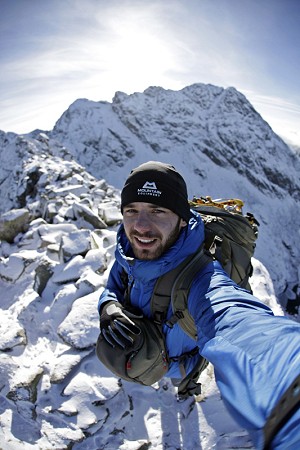
You can check out his website with stunning images and excellent videos here: LWImages.co.uk
- SKILLS: Building Fast Belays When Multipitch Sport Climbing 9 Nov, 2016
- SKILLS: Abseil Knots Explained 2 Oct, 2016
- FEATURE: Colm Shannon's Deserted DWS Heaven - Irish West Coast 7 Aug, 2016
- SKILLS: Acclimatising for the European Alps 5 Jun, 2016
- Terra Unfirma! Adventures on the Lleyn Peninsula 1 Jun, 2016
- VIDEO: Fiesta De Los Biceps 8 May, 2016
- REVIEW: Evolv Shaman 2016 18 Mar, 2016
- REVIEW: Doug Scott - Up and About 2 Feb, 2016
- ARTICLE: 12 Climbing Adventures That Won't Break The Bank 26 Jan, 2016
- DESTINATION GUIDE: 10 Routes to Climb in Chamonix in Winter 20 Jan, 2016

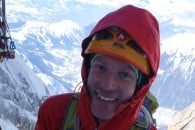

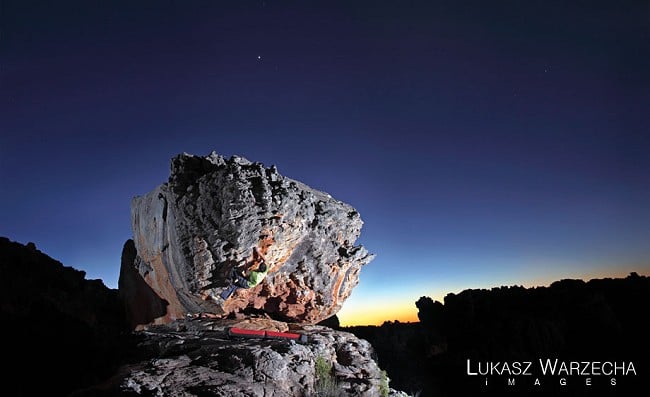
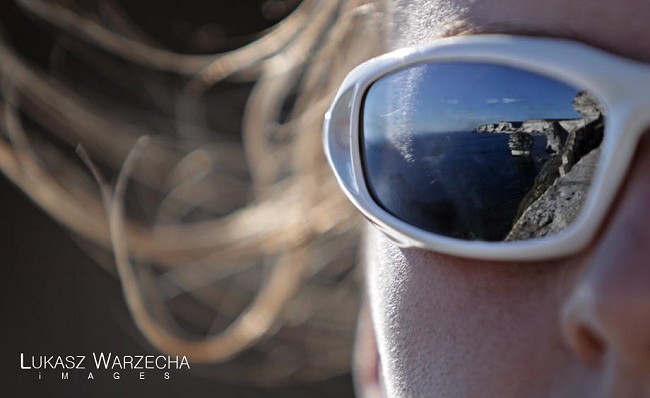
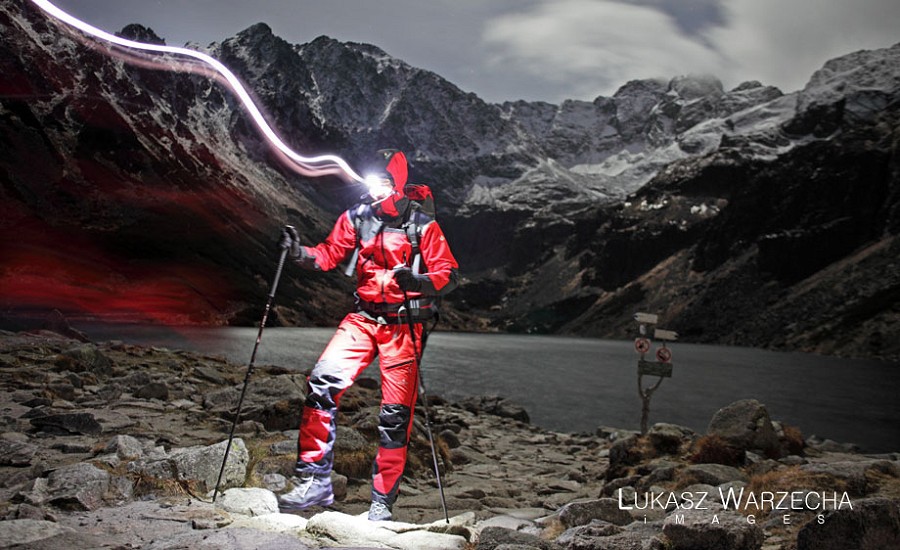
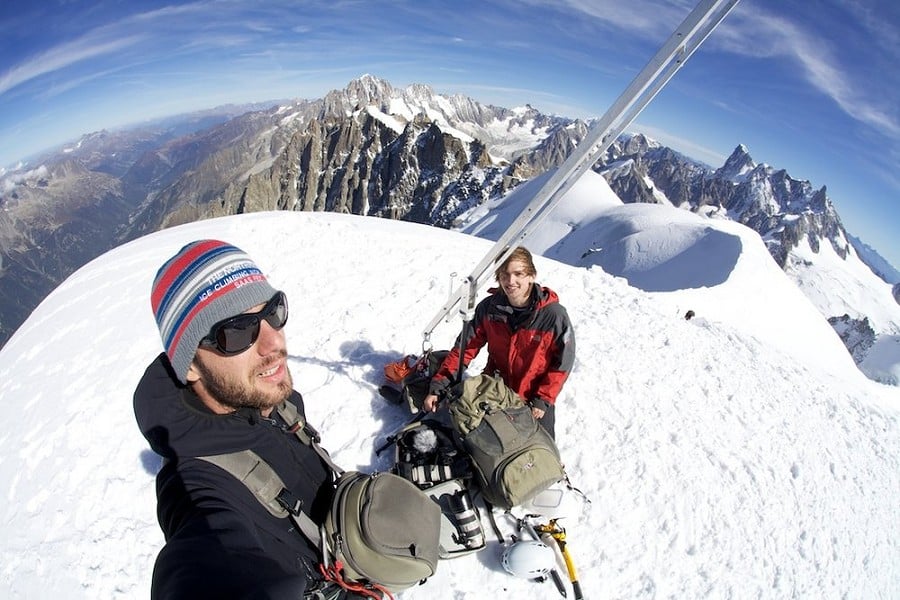











Comments